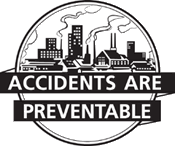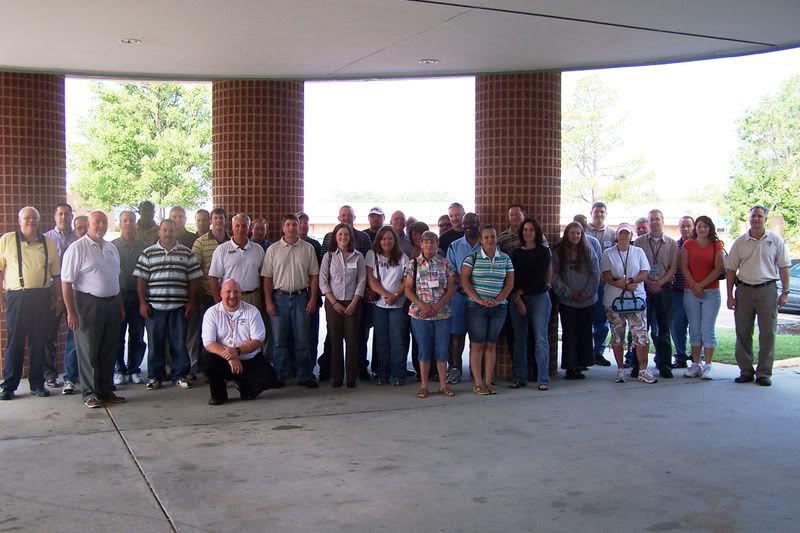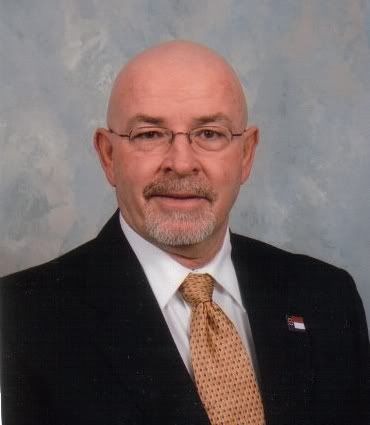|
|
|
|
||||||||||||||||||||
|
||||||||||||||||||||||

Asbestos is the name given to a group of minerals that occur naturally in the environment as bundles of fibers. These fibers have been widely used in many industries and products because they are resistant to heat, fire, and chemicals and do not conduct electricity. Due to health dangers, the Environmental Protection Agency (EPA) banned all new uses of asbestos in 1989, but uses established prior to 1989 are still allowed. While it is not used as frequently today, asbestos has historically been used to manufacture cement and plastics, insulation, roofing, brake shoes, ceiling and floor tiles, adhesives, and paints. In the past, asbestos has even been used to manufacture toasters, coffeepots, electric blankets, and hair dryers, among other common household products. Some of these household items (most were manufactured before 1980) could still be in homes across the U.S. and could pose harm to consumers. This is especially true if the owner disassembles a product containing asbestos, since older appliances may release fibers when they are taken apart. Frayed wiring on older items can also release asbestos. Modern appliances manufactured in the United States are unlikely to contain asbestos. Exposure to asbestos can occur almost anywhere. When asbestos-containing products are disturbed, its fibers may be released in the air. When breathed in, these fibers can get trapped in people’s lungs and can cause serious health problems. Unfortunately, asbestos-related symptoms can appear more than 10 years after exposure. While any asbestos exposure is dangerous, people who are exposed to high concentrations, or are exposed for long periods of time are most likely to experience asbestos-related health problems. It is important to note that the U.S. Department of Health and Human Services has classified asbestos as a known human carcinogen (a substance that causes cancer), and someone who smokes and is exposed to asbestos is particularly at risk of asbestos-related ailments. Workers in the construction and building trades, as well as firefighters and automobile workers are among those with a high risk of exposure to asbestos. However, the Occupational Safety and Health Administration (OSHA) strictly regulates the protection of workers in jobs which might expose them to asbestos. Workers should be meticulous about wearing any prescribed personal protective equipment at all appropriate times. Failure to do so could constitute a very serious health risk over time. You can minimize the risk of exposure to asbestos in the home by making yourself aware of the kinds of products that might contain asbestos. If you live in a home that was built between 1940 and 1980, you may want to have your home inspected to check for asbestos. At the very least, do not engage in any home renovation projects without first having your home inspected. If you suspect you have asbestos in your home, you should never investigate or try to remove it yourself. |
||||||||||||||||||||||
|
||||||||||||||||||||||
Kida and Spirit

National Drug Search. LLC owned and operated by Joe Glover provides a new low cost safety tool to deter drugs in the workplace by using highly trained and certified narcotics detector dogs. Joe has been providing demonstrations at several of the regional safety councils and explaining in detail some surprising facts on this topic. Recently he gave a demonstration of his services at the quarterly Blue Ridge Safety Council meeting in July. He is a good friend of the NCIC Safety Section and is always a pleasure to be around and talk to. (Not to mention his beautiful dogs, Kida and Spirit, pictured). Joe Glover can be reached at 336-668-3132 or Click Here |
||||||||||||||||||||||
|
||||||||||||||||||||||

A guy walks into the office and says @#%&*. What? Strange solutions have been suggested as means to boost employee productivity, and one study even suggests allowing swearing in the workplace when “appropriate.” The idea is that employees can best identify with one another when they can properly and comfortably express themselves. While this particular suggestion might seem a little too “out there” for some companies, most theories on boosting productivity do center around the idea that teams of workers who feel unity and solidarity are likely to be the most productive. The idea of allowing employees to swear freely in a professional workplace is cringe-worthy, perhaps because some employees would inevitably have trouble determining the appropriate occasions for such language. For skeptical employers, there is also the less daring theory that suggests implementing humor in the workplace to increase productivity. Advocates of humor in the workplace point out that humor is also a tool that can unite a group of people and facilitate support for teammates, as well as relieve stress. Of course, like the idea of allowing swearing, employing humor in the workplace should be done carefully. There are certainly times when humor is not appropriate and there are definitely types of humor that are not acceptable in the workplace. Appropriate humor in the workplace should never ostracize one employee or a group of employees, and care must be taken to ensure that humor is not offensive to anyone. Leaders who incorporate humor into the workplace (and encourage employees to do the same) usually realize that humor is good for employees’ health and minds, and also encourages creativity. Most people deem their work to be at least moderately stressful, and implementing humor can keep stress levels under control and productivity up. |
||||||||||||||||||||||
|
||||||||||||||||||||||
| by Mike Bingham |

Howdy from the Mountains! Just want to give you all a heads-up about the new NCIC Advanced APCAP that will be rolled out very soon. This is a new class designed to take participants who have completed the original 30-Hour APCAP class to new levels in safety performance. It is a two-day, sixteen hour class. There will be a limited number of sessions held, so class size may be limited - watch for registration info and sign up quickly to ensure you get a seat! There are some prerequisites for this class. It is open only to persons who have attended one of the regular 30-hour classes. Participants must bring a copy of their current written safety rules. (Rules only, not the entire program). Participants must also bring a current JSA from their facility as well. These documents will be used for some of the hands-on exercises we will do in class. Some topics included are: - Arc Flash Safety - Selling Safety to Management - Safety Math - Body Mapping - Project Management for Safety Folks - Plus Much More We have chosen topics from suggestions submitted on past 30-Hour APCAP class evaluations and hope to deliver new and exciting training that will expand on what we have already done in the original 30-Hour, while introducing new ideas along the way. Shoot me an email if this is something you would be interested in so we can update you as the roll-out gets closer. Editor’s Note: Mike Bingham is the Western Area Safety Representative for the North Carolina Industrial Commission. Mike is one of the 10 members of the North Carolina Industrial Commission’s Safety Department who are out there Working for You! to make our workplaces safer and better for each and every worker by reducing injuries to employees and saving money for employers through education and training. You can contact Mike at: Mike.Bingham@ic.nc.gov or call: 919.218.9045 |
|||||||||||||||||||||
|
||||||||||||||||||||||

Check out our Video Library ! We are in the process of UPDATING our online Video/DVD listings. Please be patient with us. To view the rest of our Library and download the REQUEST FORM, please CLICK HERE |
||||||||||||||||||||||
|
||||||||||||||||||||||
Commissioner Chris Scott

Governor Jim Hunt appointed Christopher Scott to the Industrial Commission in October 1997. Governor Mike Easley appointed Commissioner Scott to a second 6-year term in May of 2003. Chris Scott is a graduate of Hofstra University in Hempstead, NY, with a BA degree in English Literature. He earned a Master’s Degree in English Literature from the University of Texas. For the past 14 years, he has been President of the North Carolina State AFL-CIO. Prior to becoming president, he was Secretary-Treasurer and Research Director of the State AFL-CIO, and Director of Research for Teamsters Local #391. From 1977 to 1978, he was a Policy Advisor to Governor Hunt. He has also been a public school teacher. In addition to his work experience, Mr. Scott has served on the Governor’s Committee on Workforce Preparedness, the Advisory Committee of the N.C. Health Planning Commission, the Industrial Commission’s Advisory Council, the Tax Fairness Study Commission, the Advisory Board of the Z. Smith Reynolds Foundation, and the Board of the N.C. Civil Liberties Union. To e-mail Commissioner Scott CLICK HERE. |
||||||||||||||||||||||
|
||||||||||||||||||||||
Job or Respect?

Everyone’s been late from time to time - you wake up late, you get lost or miss a turn, and sometimes you just lose track of time. But what about those people who never seem to make it anywhere on time? Most people who are perpetually late don’t realize the effect it has on their relationships, their professional lives, and even their self esteem. If you are constantly late, your friends and family might feel like they can’t rely on you, and at the very least they are likely to feel that you don’t respect them. Professionally, coworkers are likely to assume that you are unorganized and incapable of following through on simple tasks. If it’s not bad enough that other people don’t think you respect them, being late all the time may indicate that you don’t think your presence is important enough to be missed. You also raise your own stress level when you are constantly arriving in the middle of events and trying to recoup missed information. If you want to show that you respect yourself and the people around you, be honest with yourself about what you’re losing by being late, and try to make a change. |
||||||||||||||||||||||
|
||||||||||||||||||||||
Morgan Corporation - Charlotte Area

Divisional Safety Manager - Charlotte, NC area. Heavy Construction, Site Prep, Underground Utilities contractor Minimum 5 years heavy construction safety experience Desired: OSHA 500, heavy equipment experience, 1st Aid/CPR trainer HSE Degree, CSP, ASP and similar certifications and education a plus Full time salaried position with excellent benefits, including vehicle Full time construction Project Safety Manager Excellent compensation and benefits Heavy Construction Safety experience required. Site prep, heavy equipment, underground utilities experience a plus. HSE Degree, OSHA 500, CSP, ASP, 1st Aid/CPR and similar education a plus. Fax or email resume with salary requirements and availability to: Dick Knight (864) 433-8808 (fax) View listings |
||||||||||||||||||||||
|
||||||||||||||||||||||
| by Michael Nance |

AFAIK this is true. When I try to use the cell phone text feature, my kids ROTFL. Any idea on what I typed above? If you’re like me, I’d rather pick up the phone and call someone rather than “text” them. By the way, AFAIK is “As far as I know” and ROTFL is “Roll on the floor laughing.” Folks, we’ve probably heard about it, read about it, and even experienced some bad e-mail etiquette lately. Since texting is close to emailing, I thought I’d include it too. I’m just as guilty as the next guy, sometimes I don’t realize what the print appears to say. We all are sort of “talking” to ourselves when typing; I am now, hoping to catch any errors before I send the article in. For the most part, texting is between friends and not necessarily a business tool. The only benefit I can see is being able to stay quiet while communicating with another person. Emailing has decreased the use of oral communication to the point that emails have become the most popular form of communicating (for adults). It has its pros and cons. The pros are: 1) I can check and respond when I choose. 2) I can print a transcript. 3) I can save the “conversation” as proof. 4) I can refer back to it multiple times. 5) I don’t have to be properly dressed when using email (from home, folks!) 6) I can send the same message to multiple people without retyping. The list goes on but, now for some cons: 1) Can be viewed as impersonal. 2) Proper grammar and punctuation is required 3) Your message might go to spam and you won’t know it. 4) It is not private and not protected. There’s more, but, Still, we can sometimes offend someone and not even know it. For example, using ALL CAPS is considered “SHOUTING” and should be avoided. I’ve used all caps before as a way of emphasizing a word or a comment. I didn’t realize that I may have offended someone by shouting through email. Angry or heated messages are called “flames.” Ever email a family member when you were upset and just banged out the words, hit send, and then sat back to re-read your message? Then you realized what it sounded like, but oooooops, too late, it’s been delivered. I guess you’ll have to use the old fashioned way of communicating and actually call someone. (Or see them F2F, that’s face-to-face) Another thing. Emails do not contain emotion and facial expression. I have joked in an email before and though, I’d better type “just joking.” I wanted the recipient to know I was being sarcastic. I know it’s become popular to use those “smileys” and “emoticons” that programs have available. Sorry, it’s just not my style. Do you know that proper email etiquette states to use no more than 12 lines without first informing the recipient in the beginning of the file? It’s true though I doubt it’s followed very much. Going back to the texting stuff. I’ve got a list of the abbreviations and what it means at my desk. Pretty amazing. I think I actually used a few of these years back. They are “fyi” (for your information) and diy (Do it yourself). Perhaps one other XOXO (hugs and kisses). You might be zzzz by now (that’s bored or sleeping), so let me close with this thought. It can get frustrating to communicate in today’s world. Before you say or type something and press “send,” take time to proof what you’re doing. Whenever you call a customer service department because of an issue, you’re most likely already “not in the mood.” Once you go through your choices on the voicemail and hold for an eternity and then get cut off, you might think about firing off a “flame” email. If you do, it will probably be over 12 lines, so be sure to inform the recipient. Remember, using all caps is an email form of shouting, so make sure the caps lock is “on.” Once you’ve made sure it’s what you want to say, press send. Now, when it comes back as “undeliverable” to your mailbox, you might have to really dig deep and type a letter, print it, and actually place a stamp on the envelop to mail it. A book of stamps last a lot longer than it used to. If I have offended anyone lately through email or perhaps with this article, “SRY” (Sorry)—or wait, “JK,” just kidding. Editor’s note: Michael Nance is the NCIC Blue Ridge, Southern & Western Piedmont areas Safety Representative. If you are interested in having one of our programs in your area, please give Michael a call at 919-218-9047 or email him at Michael.Nance@ic.nc.gov. |
|||||||||||||||||||||
|
||||||||||||||||||||||
Will your retirement literally last a lifetime?

Many people worry whether or not they’ll be able to save enough for retirement, but few people know just how much will be enough for them to live comfortably for the rest of their lives. Experts estimate that you’ll need about 70 percent of your pre-retirement income to live comfortably in retirement (the percentage might be higher for people with lower earnings). While Social Security can provide retirees with up to 40 percent of their pre-retirement earnings, it’s a good idea not to depend wholly on that income. If you’re anxious to get an accurate account of how much you’ll need in retirement, there are numerous software programs that can help you account for how much cash you might need. Programs like these can also help you account for inflation and other factors. Professional financial planners and advisors are a great source as well. The easiest way to build up retirement savings is to contribute to a tax-sheltered savings plan, such as a 401(k), if your employer offers one. Your company may even match a portion of your contributions. Start saving as early as you can and compound interest and tax deferrals will make a big difference in the retirement savings you accumulate. You can also put up to $4,000 a year into an Individual Retirement Account (IRA) and gain tax advantages. Perhaps the hardest part of saving for retirement is making it a priority, especially early on in your working career. Of course, the earlier you begin saving, the easier it will be to accumulate money. Additionally, it’s important to refrain from taking money out of a retirement account, as you’ll lose both principal and interest and might even face a penalty for making early withdrawals. The average American spends 18 years in retirement, and as science advances, this number is likely to increase. Women can expect to spend even longer in retirement than men - up to 3 more years on average - and they should plan their retirement savings accordingly. Even though there are more women in the workforce than ever before, women are also more likely to work part-time or interrupt their careers to stay home with families, and are even less likely than men to have adequately contributed to a retirement account. Now you know. Dennis :) |
||||||||||||||||||||||
|
||||||||||||||||||||||
| Dennis |
Please join us in welcoming our latest group to complete our
Accident Prevention Certificate Awareness Program

As always, it is one of our greatest pleasures participating in this series of training throughout our great state. The networking, learning and fellowship is PRICELESS! We look forward to Atlantic Beach, please join us! |
|||||||||||||||||||||
|
||||||||||||||||||||||
|
Dear N.C. Industrial Commission Safety Section,
I wanted to send my sincere gratitude for the scholarship I received at the 2008 Statewide Safety Conference. It is truly a wonderful way of helping me in my studies. Not only does it help me, but I think it is wonderful that you are reaching out to help other young safety students achieve higher education. Thank you again; your gift is greatly appreciated. - Holleigh Humble, East Carolina Masters of Occupational Safety Student Editor’s Note: The NC Statewide Safety Conference, Inc. sponsors two scholarships each year. The scholarships are available through A & T State University and East Carolina University for selected students enrolled in an Occupational Safety course of study. For more information, please contact Dennis Parnell. |
||||||||||||||||||||||
|
||||||||||||||||||||||
Fun and useless tidbits

Abraham Lincoln, who invented a hydraulic device for lifting ships over shoals, was the only US president ever granted a patent. Antarctica is the only continent without reptiles or snakes. Elvis Presley made only one television commercial - an ad for “Southern Maid Doughnuts” that ran in 1954. Mercury is the only metal that is liquid at room temperature. Teeth are the only parts of the human body that can’t repair themselves. The Beatles held the Top Five spots on the April 4th, 1964 Billboard singles chart. To date, they’re the only band that has ever accomplished that. The first graves in Arlington National Cemetery were dug by James Parks, a former Arlington Estate slave. Buried in Section 15, James Parks is the only person buried in Arlington National Cemetery who was also born on the property. |
||||||||||||||||||||||
|
||||||||||||||||||||||
|
Safety Training (Cost $4/person)
DATE: September 22, 2008 REGISTRATION: 8:30am for morning session 1:00pm for afternoon session LOCATION: Wilson’s Restaurant 4925 New Centre Drive Wilmington, North Carolina 28403 (910) 793-0999 Presented by the N.C. Industrial Commission Morning Session 9:00am-12:00noon Defensive Driving Class Tuition $4.00 for course workbook Presented by: Mel Harmon, Defensive Driving & Work Zone Traffic Instructor Certificate from National Safety Council for 4 hour Defensive Driving Class Lunch on your own Afternoon Session 1:00pm-4:00pm Respiratory Safety Presented by: Dr John Cromer, Board Certified Occupational Health Physician Back Safety Hand, Eye and Foot Safety Forklift Safety Presented by: North Carolina Industrial Commission Staff Markus Elliott, NCIC Safety Rep. Randy Cranfill, NCIC Safety Rep Dennis Parnell, Director Safety Education Sponsored by the N.C. Industrial Commission Safety Education Section
To Register by email:
Tina Padgett Amanda Bullard For more information call: Tina Padgett, RN 910-512-6217 Amanda Bullard, CMA 910-470-8837 Luanne Wayne, RTR- 256-6222 Please Register A.S.A.P.
|
||||||||||||||||||||||
|
||||||||||||||||||||||
| Randy Cranfill |

Accidents involving contact with overhead power lines not only can damage equipment, but also cause serious injuries and even death. What you know could save your life. Please remember the following safety guidelines when working near overhead power lines: · Keep a safe distance between yourself and power lines. · Ten feet is normally considered the minimum safe distance. · Before you begin working, check carefully for overhead power lines in the area you will be working. · Don’t assume that wires are telephone or cable lines: check with your electric utility for advice. · If you need to cut a tree branch, be sure that it won’t fall into power lines. · Should a branch fall into your lines, call your local electric utility company. Occupational Health and Safety Administration (OSHA) regulations require professionals to keep themselves and any of their tools at least 10 feet away from overhead power lines. This means the average person should stay much farther away because electricity is unforgiving. It will take the easiest path to the ground, even through you. It will travel through any conductor including metal, trees, water or a human body. If you or an object you are holding accidentally become part of the pathway, you could be electrocuted. Power lines - stay away to stay safe! |
|||||||||||||||||||||
|
||||||||||||||||||||||
|
The N.C. Industrial Commission Safety Education Section stands ready to assist you with your Safety training needs. We offer a variety of courses, designed to suit your needs. Please give one of our Industrial Safety Representatives a call.
N.C. Industrial Commission |
||||||||||||||||||||||
|
|
|
|||||||||||||||||||||
|
||||||||||||||||||||||||||||||||||||||||||||||||||||||||||||||||||||||||||||||||||||||||||











